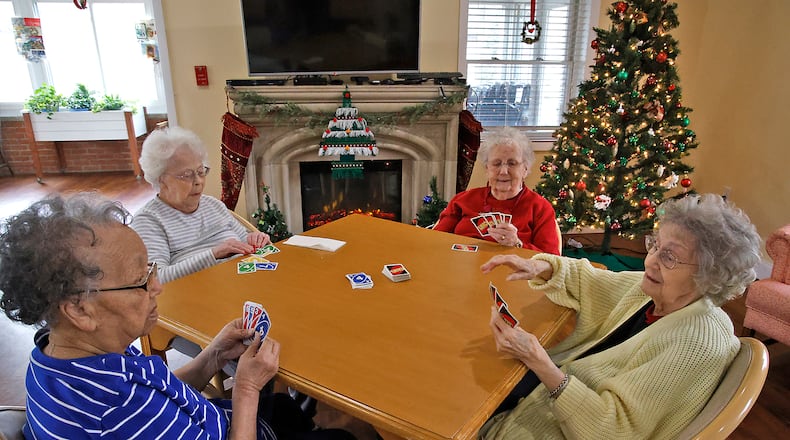Credit: Bill Lackey
Credit: Bill Lackey
Charlotte Clark conceived of the idea out of necessity.
After losing two husbands and then her son, Clark found herself returning to the large Fountain Avenue family home she inherited in Springfield, alone, in 1899. She hoped to live out the rest of her life in the familiar surroundings of the property and sought a way to ensure that she could.
She launched a quest to deed the property to an organization that would honor her guidelines in creating a home for elderly ladies and would also allow her to live in a small section of it for the remainder of her days.
She found the perfect partner in her effort in the Women’s Christian Association. A board was established to oversee operations, with representatives of five prominent churches in Springfield appointed to serve.
Clark’s instructions specified that the home was to be nondenominational. Community donations were solicited with a goal of offering safe harbor to “women grown old in the service of their children, who have served their country to the greatest possible extent by giving to it sons and daughters to carry on the world’s work.”
The house was remodeled through donations and gifts, largely from churches, businesses and individuals, to accommodate 14 residents, and it officially opened in 1899.
The home was and still is intended to be a real home, offering the amenities and freedoms residents would enjoy in a private residence. They could enjoy visitors, come and go as they please, share the communal rooms and gather for meals as a family.
Those traditions now continue in the home’s current location, constructed in 1960 to replace the original two-story, Victorian-style original structure. Currently tucked away into a quiet corner of Springfield’s Ridgewood District, the Clark Memorial Home is one of only two non-profit residential agencies serving the elderly locally.
Credit: Bill Lackey
Credit: Bill Lackey
Executive Director Cate Estep says the current management and board continue to honor the guiding principles of Charlotte Clark.
“She believed that no one should be alone as they get older. Our goal is to maintain her mission to keep people more socially involved with others … We focus on the things that are important in their lives.”
The building — nestled between Fountain and Limestone at 106 Kewbury Road — offers each resident a private room, access to outdoor amenities and communal meals that often include special requests from residents. Light-filled rooms, art covered walls, antiques that reflect the home’s heritage and accessible outdoor spaces provide the ladies who live within all the comforts of home.
Credit: Bill Lackey
Credit: Bill Lackey
A board continues to oversee operations, and many of the staff are long-term employees of the home, the longest tenured having joined the staff in 1994.
“It takes good people,” Estep says, pointing out the facility has earned deficiency free survey ratings from state inspectors for over 17 years.
The Clark Memorial Home for women is open to ambulatory residents who are seen regularly by a nurse, but it does not provide 24-hour nursing services. Care is personalized and a physician makes calls to the home when needed. With a maximum of 18 rooms available, the home remains community supported and keeps costs below average for residents.
“We are not right for everyone,” Estep observes, “but we are perfect for some.”
Charlotte Clark’s gift continues to give comfort, meaning and community to elderly women, just as she envisioned.
About the Author



